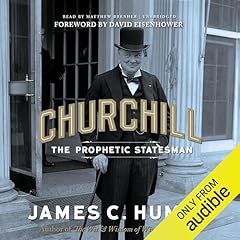
The League of Nations
The Controversial History of the Failed Organization That Preceded the United Nations
No se pudo agregar al carrito
Add to Cart failed.
Error al Agregar a Lista de Deseos.
Error al eliminar de la lista de deseos.
Error al añadir a tu biblioteca
Error al seguir el podcast
Error al dejar de seguir el podcast
 Exclusivo para miembros Prime: ¿Nuevo en Audible? Obtén 2 audiolibros gratis con tu prueba.
Exclusivo para miembros Prime: ¿Nuevo en Audible? Obtén 2 audiolibros gratis con tu prueba.Compra ahora por $9.76
-
Narrado por:
-
Colin Fluxman
The United Nations is one of the most famous bodies in the world, and its predecessor, the League of Nations, might be equally notorious. In fact, President Woodrow Wilson's pet project was controversial from nearly the minute it was conceived. At the end of World War I, Wilson's pleas at the Paris Peace Conference relied on his 14 Points, which included the establishment of a League of Nations, but while his points were mostly popular amongst Americans and Europeans alike, leaders at the Peace Conference largely discarded them and favored different approaches. British leaders saw their singular aim as the maintenance of British colonial possessions. France, meanwhile, only wanted to ensure that Germany was weakened and unable to wage war again, and it too had colonial interests abroad that it hoped to maintain. Britain and France thus saw eye-to-eye, with both wanting a weaker Germany and both wanting to maintain their colonies. Wilson, however, wanted both countries to rid themselves of their colonies, and he wanted Germany to maintain its self-determination and right to self-defense. Wilson totally opposed the "war guilt" clause, which blamed the war on Germany.
Wilson mostly found himself shut out, but Britain and France did not want American contributions to the war to go totally unappreciated, if only out of fear that the US might turn towards improving their relations with Germany in response. Thus, to appease Wilson and the Americans, France and Britain consented to the creation of a League of Nations. However, even though his participation in the crafting of the Treaty of Versailles earned him a Nobel Prize that year, Wilson soon learned to his consternation that diplomacy with Congress would go no better than his diplomacy with European leaders. The only major provision that Wilson achieved in Europe, the League of Nations, was the most controversial in the United States. Both aisles of Congress had qualms about the idea, believing it violated the Constitution by giving power over self-defense to an international body. Other interests in the United States, especially Irish-Americans, had now totally turned against Wilson. The President's interest in national self-determination extended to many European countries, including Hungary, Poland, Czechoslovakia and Belgium, but it excluded one critical country: Ireland, a country currently embroiled in a revolution against Great Britain. Worse, Irish-Americans thought the League of Nations would harden Anglo control of global institutions. Simply put, Wilson returned home to find many Americans weren't buying the League of Nations. While the Senate was able to build a slim majority in favor of ratification, it could not support the necessary two-thirds majority.
Although the League of Nations was short-lived and clearly failed in its primary mission, it did essentially spawn the United Nations at the end of World War II, and many of the UN's structures and organizations came straight from its predecessor, with the concepts of an International Court and a General Assembly coming straight from the League. More importantly, the failures of the League ensured that the UN was given stronger authority and enforcement mechanisms, most notably through the latter's Security Council.
©2016 Charles River Editors (P)2017 Charles River EditorsLos oyentes también disfrutaron:






















